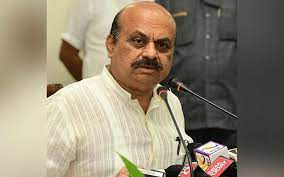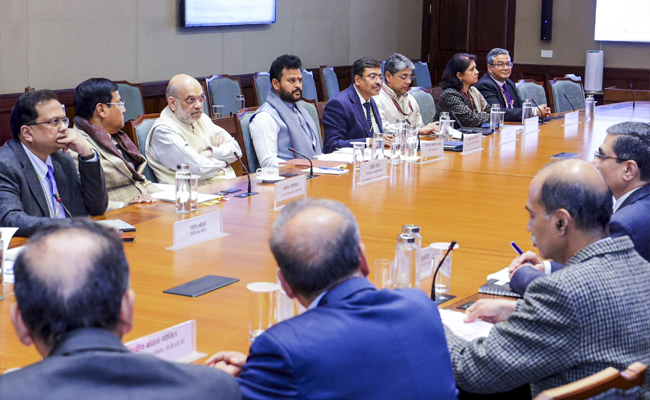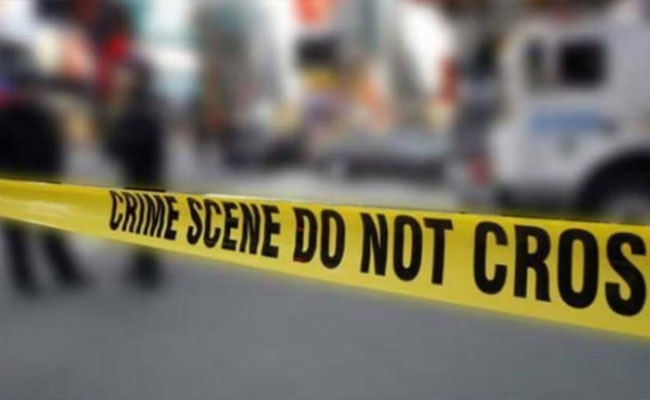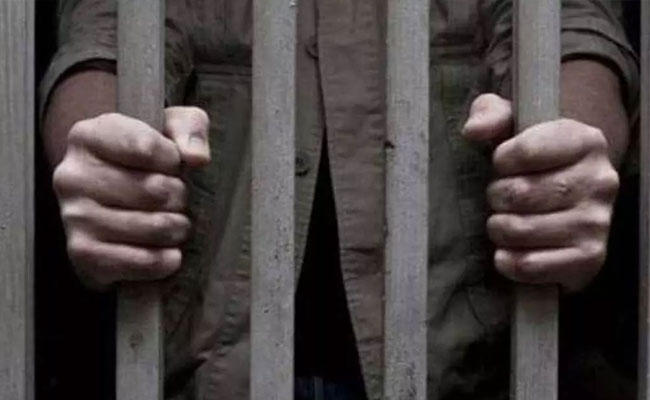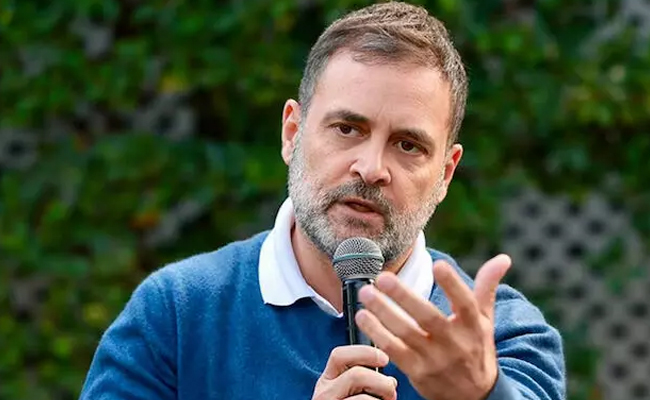Bengaluru(PTI): Karnataka Chief Minister Basavaraj Bommai on Tuesday said those who are in trouble due to the professional investigation into various issues are criticising the 'impartial and fearless' police.
The statement came a day after the Congress accused Karnataka Home Minister Araga Jnanendra and Higher Education Minister Ashwath Narayan of allegedly shielding some accused in the police sub-inspector recruitment scam, which was unearthed recently. Narayan dismissed the allegation as baseless.
"Today the police is doing a good job. It is functioning fearlessly and impartially. They are investigating every scam in a professional manner, due to which some people are in trouble. Those in problem are talking ill of the police. They are scared," Bommai said at the inauguration of the Nrupathunga University and the groundbreaking of its new academic block.
Union Home Minister Amit Shah, Union Minister for Coal and Mines Pralhad Joshi, Jnanendra, Ashwath Narayan and the Director General of the Police Praveen Sood were present on the occasion.
Speaking at the event, Bommai said, "We are not against any individual but we are only against crime. No one should give shelter to the criminals. Those who are in trouble speak in a different tone."
Several officials were accused of being involved in the irregularities in the recruitment exam held in October last year for filling up 545 PSI posts.
The Bommai government annulled the examination following alleged large-scale irregularities to fill the posts.
So far more than 30 people have been arrested in connection with the case while 10 are absconding. It is alleged that the candidates paid Rs 75 lakh to Rs 80 lakh to get selected.
Hailing the new National Education Policy, which has been introduced by the Union government, Bommai said it will bring a revolutionary changes in the education sector.
He said the NEP addresses three core areas-Education, Employment and Empowerment.
The Chief Minister said the Nrupathunga University is the symbol of the change in the education system.
Let the Truth be known. If you read VB and like VB, please be a VB Supporter and Help us deliver the Truth to one and all.
New Delhi (PTI): To beef up the security infrastructure of ports, the government will set up a statutory body -- the Bureau of Port Security -- that will ensure timely analysis, collection and exchange of security-related information of ports and vessels, officials said on Friday.
Union Home Minister Amit Shah on Thursday convened a meeting for the constitution of the dedicated body, the Bureau of Port Security (BoPS), which was attended by the Minister of Ports, Shipping and Waterways, Sarbananda Sonowal, and the Minister of Civil Aviation, Ram Mohan Naidu, an official statement said.
Emphasising that there is a need to establish a country-wide robust port security framework, Shah directed that security measures should be implemented in a graded and risk-based manner, taking into account vulnerabilities, trade potential, location, and other relevant parameters.
ALSO READ: Four arrested in cattle theft case after encounter in UP's Kaushambi
The meeting also noted that lessons learned from the maritime security framework shall be replicated in the aviation security domain, the statement said.
The new body, modelled on the lines of the Bureau of Civil Aviation Security (BCAS), will be constituted as a statutory body under the new Merchant Shipping Act, 2025, and will work under the aegis of the Ministry of Ports, Shipping and Waterways (MoPSW), it said.
Headed by a senior IPS officer as its director general, the BoPS will be responsible for regulatory and oversight functions relating to the security of ships and port facilities.
"During the transition period of one year, the director general of shipping shall function as the director general of BoPS," the statement said.
"The BoPS will ensure timely analysis, collection and exchange of security-related information, with a special focus on cybersecurity, including a dedicated division to safeguard port IT infrastructure from digital threats," it said.
The government has designated the Central Industrial Security Force (CISF) as a recognised security organisation (RSO), responsible for undertaking security assessments and preparation of security plans for port facilities.
The Central Armed Police Force (CAPF) will train and build the capacities of private security agencies (PSAs) engaged in port security.
"These agencies shall be certified and appropriate regulatory measures shall be introduced to ensure that only the licensed PSAs operate in this sector," the statement said.

